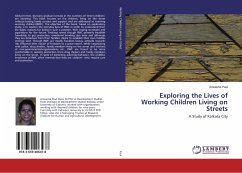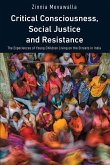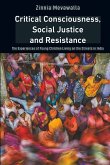Global trends, showing gradual increase in the numbers of 'street children', are alarming. This book focuses on the children, living on the street without having family contact and support and are addressed as 'roaming working children'(RWC). The objective of the book, based on exploratory study, is to explore the everyday lives of RWC in order to understand their life styles, reasons for being in such a position, their coping strategies and aspirations for the future. Findings reveal though RWC primarily establish friendship to get protection, emotional bonding also arise and although they are detached from their families, desire to establish their own families strongly exist. Though RWC are mostly freedom loving, attitude towards risk influence their notion of freedom to a great extent. While negotiating with police, drug dealers, family members living on the street and workers of non-governmental-organizations etc., RWC are found to be more comfortable in seeking protection from drug dealers and family members living on the street. In spite of exhibiting adult-like-behavior, the childlike innocence of RWC often reminds that they are 'children'- who require care and protection.
Bitte wählen Sie Ihr Anliegen aus.
Rechnungen
Retourenschein anfordern
Bestellstatus
Storno








